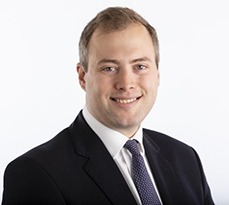Working towards your individual career objective, the Cambridge MBA Summer Project allows you to apply the learning of the previous year. We hear from one Cambridge MBA graduate who developed a distinctive individual research project.

Stephen Quick completed his MBA programme last year. With a background in the finance sector he started his MBA year aiming to secure a more senior role in the same industry.
He explains;
“I took the opportunity to undertake an individual research paper as part of my MBA studies. I chose to do this as it was a fantastic chance to have the time and resources to learn about a business subject that I had an interest in. During my research I spent time looking at the impact of technology and regulation on asset management and financial planning industries.”

Head of Business Development at Cambridge Judge, Sadia Cuthbert outlines the scope of the Cambridge MBA Summer Project.
“Students must select one from the following three different options:
- Individual Project – client based project
- Work Placement – company based full time, short term role
- Research Paper in a defined subject area
“Recent projects have included product extension strategy for a financial services company, analysis of the US railway sector, branding strategy development for a national retailer and derivatives modelling. For the summer Individual Project (IP) and Work Placement (WP), students are expected to negotiate a brief with a company or organisation directly.”
The Research Paper (RP) allows students to conduct independent and in-depth research in a specific area of business management.
The Cambridge MBA summer term takes place between July and September, and students are expected to work between six to eight weeks full-time during this period. The final deliverable for each option concludes the MBA programme in September.
Selecting your research theme
Stephen explains the process of selecting his research paper during his year,
“The research project required a proposal to be submitted by mid-June. This included the title, a business research area, the overall research objective, as well as the proposed methodology of research.
“I had started thinking about ideas for my summer project from the beginning of my MBA. It was important to me that I applied my course learnings to maximise the experience.
“I had been working in the investment management industry for a number of years. I had previously been employed in a technical front office role, completing qualifications such as the CFA (Chartered Financial Analyst) exams.
“I had never actually had the chance to look at the industry from a macro view. I wanted to take this opportunity to learn about different aspects of the industry that I had not previously had exposure to and explore new ideas.
“I realised early on that I needed to build on my base level knowledge of technology and regulation currently used in the industry, and what was likely to be adopted in the future. The skills and teaching from the MBA year allowed me to think about these issues more strategically.”
He concludes; “Without the opportunity to complete this research paper it is unlikely that I would ever have had the valuable time to focus on and explore these issues.”
The research project process
As part of his key primary research Stephen interviewed many experts in the field. He explains,
“A great deal of time went into selecting the correct people to interview for my primary research and formulating the questions I wanted answers to.
“Arranging the interviews was a time-consuming process, but the resulting dialogue and insight was invaluable to the research overall and brought information into the project that reading secondary sources alone could not deliver.”
As with many students opting for a research paper, Stephen found that while he started with a broad topic, as it developed the area of focus began to sharpen.
Sadia Cuthbert explains the final deliverables required for the Cambridge MBA Research Paper.
“The deliverable is a 3000-word paper written for a business audience similar to those appearing in publications such as Harvard Business Review or the Sloan Management Review“.
For Stephen, writing the concluding paper allowed him to address any areas where his analysis had potential gaps. It allowed him to both frame and strengthen his conclusions.
“One thing I found very useful was identifying different research sources that were commonly used by senior management within the industry, and then challenging that with alternative sources that I had gained access to.”
A unique project overall
For many MBA students the outcomes at the end are quite different to those designed or anticipated at the start of the project. For Stephen the learning curve was even steeper than that.
“It was only once I had completed the paper that I realised that I had started to think about some of the industry issues in a completely new way.
“The time I had taken to understand niche areas of study and to speak to experts in the field had taken my perspective way beyond my peers, who perhaps had not had the opportunity for such a period of in-depth research.
“The Cambridge MBA research paper gave me unique access to those with influence across the industry. I was able to reach out to not only industry individuals in senior positions, but also to those experts in very specific fields such as regulators, academics, computer scientists and fintech entrepreneurs.
“It was the research that allowed me to get through the door in the first place and to make connections from there.”
Stephen realised that he had started to develop a technical edge over some of the industry leaders that he was interviewing. “I realised that the research I was conducting was not only of interest to me but would also be of great value to the wider industry itself.”
The resulting network of contacts and industry experts would be an extremely useful and influential network when Stephen re-entered the job market after his MBA studies. This network will stand him in good stead for many years to come across his chosen industry sector.
Overall, the research project allowed Stephen to learn how to look at broad industry trends in a way he had not done previously. “It gave me the valuable knowledge of what information is relevant and where to find it very quickly.” Crucially this perspective was developed in strategic way.
Securing a new role
Returning to the role of investment portfolio manager, Stephen now combines this position, with a role in wider corporate strategy.
“The new role allows me to work closely with senior management on corporate issues while also having the perspective of a front office employee.”
Excited by this new combined role, Stephen says – “It allows me to build on and maximise my Cambridge MBA experience and skills.”
He concludes; “The Summer Project remains one of the most valuable experiences of my MBA year.”


